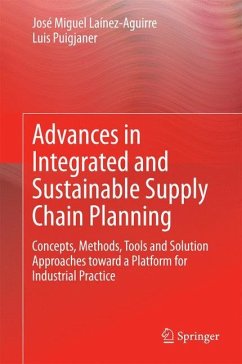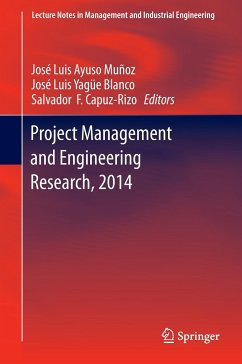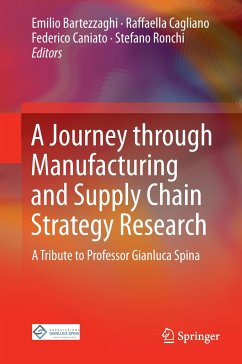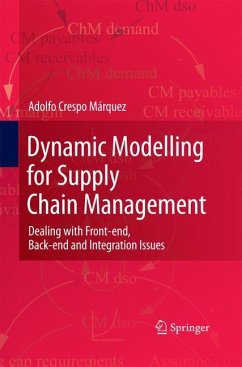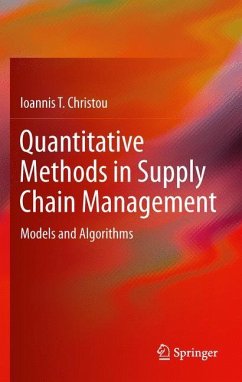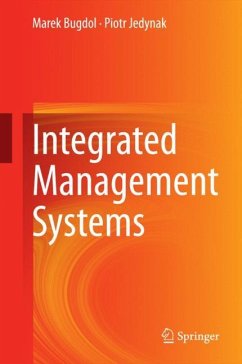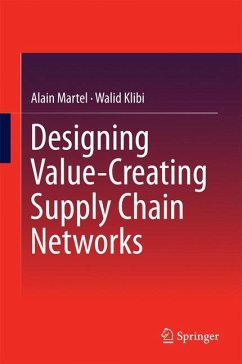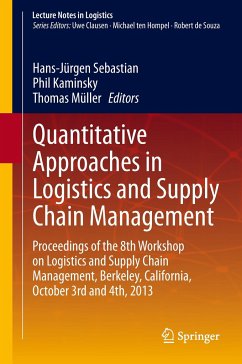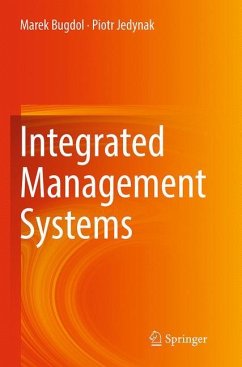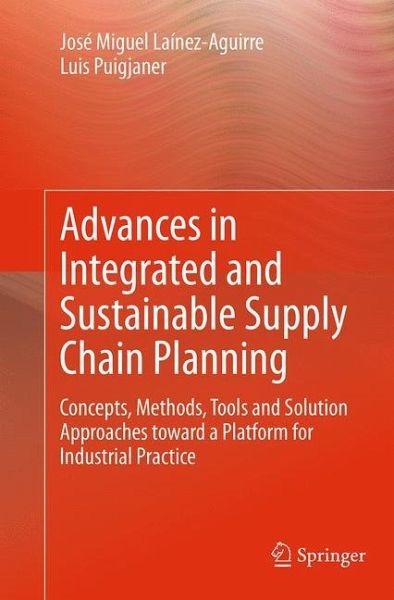
Advances in Integrated and Sustainable Supply Chain Planning
Concepts, Methods, Tools and Solution Approaches toward a Platform for Industrial Practice
Versandkostenfrei!
Versandfertig in 6-10 Tagen
113,99 €
inkl. MwSt.
Weitere Ausgaben:

PAYBACK Punkte
57 °P sammeln!
Decision making at the enterprise level often encompass not only production operations and product R&D, but other strategic functions such as financial planning and marketing. With the aim of maximizing growth and a firm's value, companies often focus on co-ordinating these functional components as well as traditional hierarchical decision levels. Understanding this interplay can enhance enterprise capabilities of adaptation and response to uncertainties arising from internal processes as well as the external environment.This book presents concepts, methods, tools and solutions based on mathem...
Decision making at the enterprise level often encompass not only production operations and product R&D, but other strategic functions such as financial planning and marketing. With the aim of maximizing growth and a firm's value, companies often focus on co-ordinating these functional components as well as traditional hierarchical decision levels. Understanding this interplay can enhance enterprise capabilities of adaptation and response to uncertainties arising from internal processes as well as the external environment.
This book presents concepts, methods, tools and solutions based on mathematical programming, which provides the quantitative support needed for integrated decision-making and ultimately for improving the allocation of overall corporate resources (e.g., materials, cash and personnel).
Through a systems perspective, the integrated planning of the supply chain also promotes activities of reuse, reduction and recycling for achieving more sustainable environmental impacts of production/distribution networks. Thus, this book presents, for the first time, a unique integrated vision of the Enterprise Supply Chain Planning and provides a comprehensive account of the state of the art models, methods and tools available to address the above mentioned features of the modern supply chain.
It offers a comprehensive review of the associated literature of supply chain management and then systematically builds on this knowledge base to develop the mathematical models representing each of the core functional units and decision levels of the corporation and shows how they can be integrated into a holistic decision problem formulation.
Abundant illustrations and tables help maximize reader insights into the problems discussed with several case studies and industry application also examined.
This book is intended as a textbook for academics (PhD, MSc), researchers and industry decision-makers, who are involved in the design,retrofit and evaluation of alternative scenarios for the improvement of the supply chain.
This book presents concepts, methods, tools and solutions based on mathematical programming, which provides the quantitative support needed for integrated decision-making and ultimately for improving the allocation of overall corporate resources (e.g., materials, cash and personnel).
Through a systems perspective, the integrated planning of the supply chain also promotes activities of reuse, reduction and recycling for achieving more sustainable environmental impacts of production/distribution networks. Thus, this book presents, for the first time, a unique integrated vision of the Enterprise Supply Chain Planning and provides a comprehensive account of the state of the art models, methods and tools available to address the above mentioned features of the modern supply chain.
It offers a comprehensive review of the associated literature of supply chain management and then systematically builds on this knowledge base to develop the mathematical models representing each of the core functional units and decision levels of the corporation and shows how they can be integrated into a holistic decision problem formulation.
Abundant illustrations and tables help maximize reader insights into the problems discussed with several case studies and industry application also examined.
This book is intended as a textbook for academics (PhD, MSc), researchers and industry decision-makers, who are involved in the design,retrofit and evaluation of alternative scenarios for the improvement of the supply chain.




